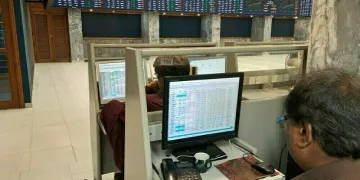Thursday, 24 September 2015 22:05
 SAO PAULO: Brazil’s real extended its week-long rout on Thursday as investors questioned how and when the central bank would work to calm fears of a mounting economic and political crisis.
SAO PAULO: Brazil’s real extended its week-long rout on Thursday as investors questioned how and when the central bank would work to calm fears of a mounting economic and political crisis.
Other currencies in the region were steady, while the MSCI Latin American stock index declined for the sixth straight session.
The real has been in a tailspin this year, weakening nearly 37 percent against the dollar as economic recession, lower commodities prices, expectations for higher interest rates in the United States and political turbulence at home rattle investors.
Traders focused on the central bank on Thursday as its president, Alexandre Tombini, addressed the real’s weakness during a press conference in Brasilia.
Tombini said the currency’s depreciation had pressured short-term inflation, sparking an initial jump in yields on Brazilian interest rate futures and a near-reversal in the currency’s initial loss of roughly 2.4 percent against the dollar.
Both asset classes retreated shortly thereafter, however, as Tombini reiterated that the central bank intends to keep interest rates at current levels for a prolonged time.
“The central bank’s actions are very confusing, the result being that the market doesn’t know what to do and is operating with this incredible volatility,” said a trader who requested anonymity because he is not authorized to speak with the press.
The central bank intervened in the currency market twice on Wednesday, though it did little to support the real. Tombini said on Thursday that the bank could use any of its intervention tools to limit volatility, including dollar sales from its reserves, something the bank has not done since 2009.
Brazil five-year credit default swaps (CDS) rose 33 basis points from the previous close to 513 bps, according to data from Markit.
Ongoing concerns about global economic growth continued to weigh on other currencies in the region such as the Colombian and Mexican pesos , though Chile’s peso remained in positive territory, helped by a slight increase in the price of copper, the country’s main export.
Elsewhere in emerging markets, both the South African rand and Turkish lira dropped to new record lows against the dollar, while the Hungarian forint sank 1 percent to the euro after a cut in overnight deposit rate to near zero.


























